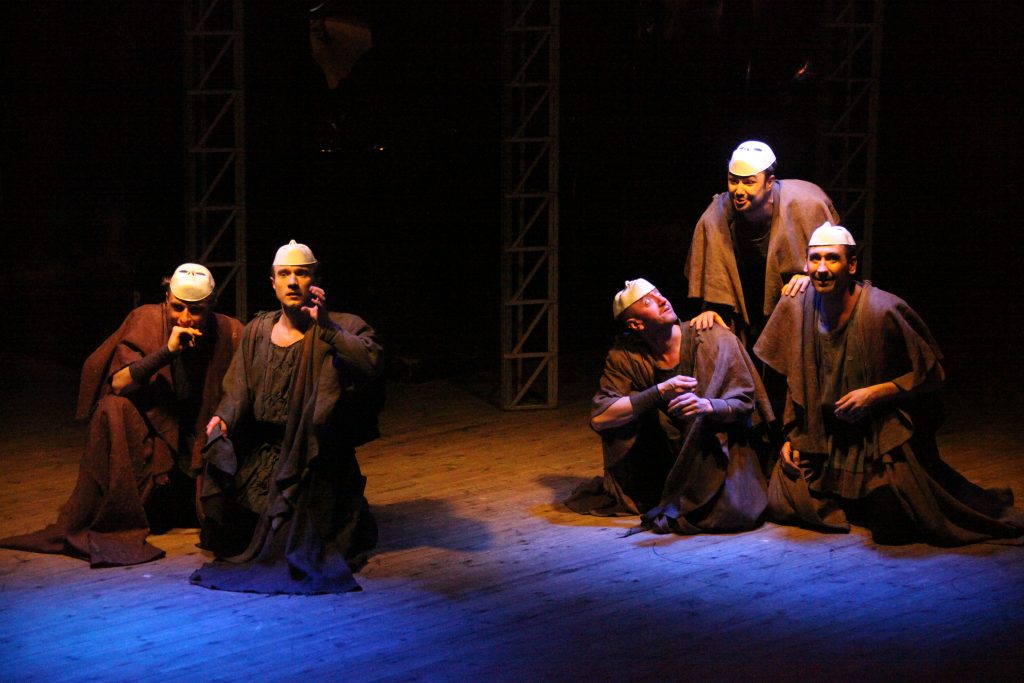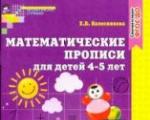Romeo and Juliet in theatrical productions. The play "Romeo and Juliet" in the theater in the South-West
... But the story of Romeo and Juliet will remain the saddest in the world ...
I feel very sorry for Juliet. After the performance, a lot of different things flashed through my head. And something about the genre of the play, about the inevitability of fate, about first love, even about the peculiarities of translation and modern perception of Shakespeare. There was also a malicious “but I would have looked at Romeo and Juliet after ten years of marriage.”
And then it dawned on me! What rock? What is the feud between families? It's the author's fault! He is a scoundrel! That's it measure-for-vetz! That's it with such intonation of Tybalt when referring to Romeo. Why did he kill the girl? He dealt with the poor thing in a completely George Martin style. She is so sweet, beautiful, just a child .... And after all, you can’t write an abusive comment on social networks of this, if I may say so, ... playwright.

And what is the point of the play if everyone is dead? © Gleb, 13 years old
I don't know what's the point. But I definitely understood that Shakespeare was exactly Shakespeare. There were no figureheads, no elaborate camouflage. He has everything straight. We make plays for the audience to enjoy. What do viewers need? Laugh and cry.

Excellent! We laugh half the show and cry half the time. Quoted jokes below the belt? Let's put them in too. Romantic scenes to sob female part public? They will certainly. Comic characters - here's the Nurse, servants. Even sword fights look good. There is. a little smart phrases so that, God forbid, the intelligentsia does not get bored? On stage is the progressive monk Lorenzo. I think that's how Shakespeare wrote his plays. It just so happened that he was talented, damn it.

After all, when the audience of the Globe Theater watched Romeo and Juliet, they did not gasp in admiration: “Ah, Shakespeare! Ah, brilliant." Not interested? Unclear? Here's a tomato for you.

We are born with the built-in knowledge that Shakespeare is a genius and the main characters in this Italian play are going to die. And now imagine that at the updated version of "Romeo and Juliet" in the theater in the Southwest, I suddenly felt like I was seeing this story for the first time. I'm worried, worried and really hope for a happy ending. Well suddenly? One time, huh?
Are you speaking from the heart?
- from the heart
The fact is that she appeared on the stage. Juliet. And the word “touching” suddenly changes its meaning. These are not cats at all. Actress Nika Sarkisova touched my heart with her hand. It turns out there is. Sometimes you remember about it only in the theatre. Both funny and sad. After all, having lived to be almost 40 years old, I know that there is no love at first sight. As I also know that hasty marriages do not end well. And everything will definitely be bad. But what a wonderful thing love is!

In the first scene, Juliet is just a child. He laughs, plays pranks, and if he says the right things from the parents' point of view, it's because educated children, in principle, know how to be reasonable and polite. It doesn't mean they think so. The goal of all teenagers is to keep contact with us bores to a minimum.
Romeo, performed by Anton Belov, also does not differ in maturity at first. He has a different teenage stage: soul-searching, admiring his own melancholy and supposedly love (yes, Romeo is in love. Surprise!) He is at the “no one understands me” stage.

But how everything changes when Romeo meets Juliet. This scene is the catalyst. It seems that up to this point, the feud between the Capulets and the Montagues was on the verge of extinction. Everyone acted on impulse. The servants fight in jest, the duke once again tediously debriefs, just a little more, and everything would have calmed down by itself. However, Romeo collides with Juliet, the circuit closes, and electric discharges begin to beat. Tybalt screams, “Carmina Burana” sounds, and you understand: the death of children cannot be prevented.

The action gets off the leash and moves faster and faster. First, the servants quarrel for a long time, prepare in detail for the ball, Romeo yearns. Then - the scene on the balcony, the wedding, the murder of Mercutio, the crypt. A lot of Shakespeare's text was left behind the scenes.
As if the kiss of Romeo and Juliet released the hatred and aggression that only smoldered in the heroes. Except for Tybalt, of course. Hence the moral. You should never be at enmity, even sluggishly, never pronounce death wishes. There will come a moment when all that has been said materializes.

And the audience can only grab at the heart, then cry, then laugh. Shakespeare anyway! Master of tragedy and comedy. And director Valery Belyakovich. Not a single spectator has left him yet.
Mercutio, shut up. You are empty.
All girls dream of being Juliet. And the boys about the role of Romeo? I think no. The most winning, the most difficult male role in Romeo and Juliet it is Mercutio.

This is not a person, this is fireworks, sparkling humor, mobility. The one who fell silent only on his deathbed. He was named either in honor of the god Mercury, or in honor of mercury. Yes, this is the spitting image of Kostya from the “Pokrovsky Gates”! Only with a tragic ending. A wonderful monologue about Queen Mab. Only people like Mercutio begin to talk nonsense, then they themselves believe in it, which is why the nonsense no longer looks like nonsense, and then they themselves sneer at the above. Oh Queen Mab!

For me, the main intrigue of the performance is who will play Mercutio. And the opening of the evening - actor Farid Tagiyev. Why, why did he get into a fight with Tybalt? After all, he himself emphasized: I don’t participate in internecine showdowns, I’m just a friend of Romeo. “Plague take both of your families!”
Shakespeare and children
Theater in the Southwest masterfully translates Shakespeare into modern language. One gets the impression that you are watching a play not by an author who died five centuries ago, but by some playwright of our time. It's just a medieval plot for some reason. It seems to be in place and complex monologues, and incomprehensible creatures are mentioned, such as Queen Mab.

But everything is clear! The rhythm of speech - the text is pronounced as if it were written in prose, jokes, the very appearance of the actors is so different, as if you were riding in an electric train, and the neighbors on the bench suddenly begin to play sad or funny scenes in front of you. By the way, a similar technique was used by director Valery Belyakovich in the play “Give me Shakespeare!”.

And A Midsummer Night's Dream? This is my son's favorite show now. Could I believe that a child would know such a little-known play as “The Two Veronians”, who Pyramus and Thisbe are, see Lady Macbeth, will distinguish Mercutio from Tybalt, and moreover, will imbue Romeo and Juliet. Although I was sure that a play about love was absolutely not for him. But in the theater in the South-West, the production is extremely dynamic and spectacular. In addition, the music editor perfectly selects the music for each performance. The leitmotif of "Romeo and Juliet" is "Carmina Burana" by Carl Orff.
Well, no one canceled sword fights! Boys always love it.
My personal thanks to my son's favorite actor, Andrei Sannikov, who played one of the servants. When we see him, we joyfully exchange glances with Gleb: ours is in place! And this means that the performance was a success.

Gleb just did not understand two points. The first is why stranger called father? He even decided, naive soul, that Romeo good relationship with Dad. Haha. It was the holy father, Gleb. Monk Lorenzo.

And the second. The final. The fact is that it looks like this: all the heroes of the play line up in a semicircle around the “dead” Juliet. And the famous scene in the cemetery takes place. And it involves: Romeo, Paris and the sleeping Juliet. The rest seem to be there, but in fact they are not. This is such an image, a director's move.
Staging: V.Spesivtsev
Vyacheslav Spesivtsev is, perhaps, perhaps the most consistent rebel in the Russian theatrical field. The non-conformism of the famous figure manifested itself in this production. The performance is traditional in content and modern in form. Gloomy Verona most of all resembles a night gathering of bikers with an unbridled revelry of passions. Fashionable motifs in the music for the performance also give it a topical accent. The MET presents its version of Romeo and Juliet to both the inexperienced viewer and the avid theatergoer. The walls of the MET are already accustomed to the excitement that accompanies this production. An extra ticket is asked within a block radius around the theater. And the passages to the hall are crammed with side chairs and spectators just sitting on the steps.
This demand is justified by several factors. Firstly, Shakespeare's tragedy about young lovers has been unfailingly popular with young people for four hundred years now, because at this age every love seems to be one and only (whatever the number). Secondly, along with professional artists, many key roles in the play were played by studio members, whom young viewers missed a lot. Thirdly, this theatrical project is presented in new interpretation in the spirit of the 21st century, full of modern rhythms and materials, and, of course, new human relationships. The expectations of the audience will be fully justified. Avant-garde directing, unusual set design, costumes rich in denim, leather and metal, modern, very successful musical arrangement and, finally, the inspired play of the artists finds understanding and a warm response in the audience. In the performance, the stage asceticism of the studio theater is mixed with a modern entourage. On an almost empty stage, dressed in modern suits close-up actors serve Shakespeare's word. modern dresses significantly shift the problems of the play today.
The creators of the performance will undoubtedly be able to touch some invisible nerve in the souls of modern Romeo and Juliet, which evoked in them a complex range of feelings: compassion, tenderness, irony, admiration and God knows what else! The cold world of senseless enmity gives rise to a fragile flower of feeling. Sad story two young hearts, which from the very first meeting began to beat in unison, is played out against the backdrop of a tough, youthfully straightforward relationship. Inspirational impulses and street brawls, self-denial and murder, loss and suffering, humiliation and fear that befell the fate of two young people make them be strong, look for a way out, choose between well-being and love, along with which comes death. The concentrated action and the tense inner life of the characters are displayed in disturbing and poignant, incendiary and lyrical melodies. In one work, the plot of Shakespeare and the musical eclecticism presented by modern motifs. old, all famous story told in the language of today's youth, and the music makes the world of feelings of Shakespeare's characters understandable and close.
Probably, this work was staged a record number of times, even if backward Hollywood felt the topicality of this eternal plot. Some believe that the idea of the play and its form were borrowed by the theater from Hollywood. These statements are based on a lack of information about the theater: our performance has been in operation for over 25 years and is therefore, of course, primary. We even have specific suspicions about reverse plagiarism and a person is known (we will not name names, just “ good man”), which, most likely, took the modern explication of Shakespeare's play to the west. But we are not in a complaint - let them use it, we have enough ideas for everyone.
"The curtain went up and the show began. Romeo played the fat Old man with burnt-corked eyebrows and a hoarse, tragic voice. He looked like a beer keg. Mercutio was little better - But Juliet! For the first time in my life I saw such marvelous beauty!"
Oscar Wilde "The Picture of Dorian Gray"
For several centuries, Shakespeare's play has not left the stage. Already the first productions of it, starting in 1595, were extremely popular in England. Plays ran continuously until they were banned by the Puritan Parliament in 1642. In 1660, performances resumed with great success, causing a large number of imitations and reworkings of the play (an example is Thomas Otway's drama "Caius Marius" in 1680, where the action is transferred to Ancient Rome). differently in different times directors presented to the viewer famous story. It happened that in Romeo and Juliet they sought to find an ideal essence that was not created for our world. And it happened that they were seen as just victims of their own sensual passions as a warning to those who went against the will of their elders. These, of course, are two extreme positions in explaining the images of Shakespeare's lovers, but they existed. long time. Another stumbling block for many directors was, according to Shakespeare scholars, the definition correct ratio comedic and lyrical elements in the play, as well as achieving a synthesis of the line of enmity and the line of love.
In the 20th century, the realistic view of Romeo and Juliet becomes more and more insistent. Productions that do not oppose the characters to the people sitting in the audience are a success with the public, but not always with the critics. Alisa Koonen, who in 1921 played the role of Juliet in Alexander Tairov's performance at the Moscow Chamber Theater, says this about her role: "We were in Verona and saw Juliet's house, small, all overgrown with greenery. This visit to Italy convinced me even more that that Romeo and Juliet are living, full-blooded, real people."
In Verona itself, a 1948 production by Renato Simoni at the ancient Roman theater opens a series of regular Shakespeare festivals. The play is played even in the city square of Dante, in a natural setting. It is also interesting to note an earlier performance, remembered by the Verona residents thanks to the participation in it of the then very young, and in the future great, Italian actress Eleonora Duse. In 1873, at the age of 14, with a bouquet of white roses she bought before a performance on the street, Eleanor played Juliet on the stage of the ancient Verona Arena. She was so imbued with the image of the heroine and the atmosphere of the city that she truly felt like Juliet. That evening, the audience enthusiastically said: today Juliet has risen in Verona! This significant episode is described in the novel Fire by Gabriel D'Annunzio (1900).
In England, in 1882, on the stage of the London Lyceum Theater, the play was staged on a grand scale by Henry Irving (he also played the role of Romeo): luxurious scenery, the facade of the Capulet house was copied from a real Verona palazzo, the image of Juliet (Ellen Terry) in the spirit of the Pre-Raphaelite Madonna, Chorus in the form of Dante. Two years later, the role of Juliet in this performance was played by Stella Campbell.
In the twentieth century, A. Moissi in the 1907 production by M. Reinhardt became an outstanding performer of the role of Romeo. In 1929, John Gielgud and Adele Dixon took part in the productions of the tragedy on the English stage. In 1935, at the Old Vic Theater, famous actors of the Shakespearean repertoire Laurence Olivier and John Gielgud alternately played the roles of Romeo and Mercutio in Gielgud's production (with Peggy Ashcroft - Juliet).
Gielgud subsequently wrote about their dubbing of the role of Romeo: " Big Advantage Lorrie over me was in his mighty vitality and passion. In the role of Romeo, his love scenes turned out to be truthful and tender, his tragic talent touched him deeply. I had an advantage over him in my habitual ability to handle verse and in the fact that the production was mine."
In 1940 in America, Laurence Olivier performed in Romeo and Juliet with his future wife Vivien Lee. Olivier, moreover, was the director of these performances and invested all his savings in the production. The criticism was unfavorable, and the performances were almost not successful, although they were visually beautiful, and appearance Vivien Leigh, as noted, matched the image of the heroine.
A well-known performer of the role of Juliet on the Western stage in the 60s was Dorothy Tutin. The directors of the second half of the 20th century tried more and more boldly to find a living, a fresh look on the heroes of Shakespeare's tragedy and give the viewer the opportunity to guess thoughts and feelings behind the historical costumes and scenery today.
Example: A Shakespeare Memorial Theater production directed by Glen Byam-Shaw, shown in Moscow in 1958. Also Franco Zeffirelli with his landmark production in 1960 at the London Old Vic (John Stride - Romeo, Judi Dench - Juliet), which had a sensational success. In 1964, the same performance was staged by Zeffirelli in Italy (in Verona, then in Rome), and in 1966 it was shown on the Moscow stage. In this production, the features of the future famous film adaptation, made by the director in 1968, are already visible.
Now let's move to our country...
There are several Russian translations of Shakespeare's Romeo and Juliet. The first - I. Raskovshenko 1839; then - N. Grekova 1862; A. Radlova 1865; B. Pasternak 1943; T. Shchepkina-Kupernik in 1957 and, of course, there are more (for example, the recent one - E. Savich).
AT recent times in theatrical performances and films increasingly began to use the translation of Boris Pasternak. It is believed that this text is closest to today's speech, and the big name of the translator apparently matters.
Already in the 19th century, Shakespeare's play was staged in many cities of Russia. The roles of Verona lovers were once played by: Mochalov (Maly Theatre, 1824), Fedotova, Yermolova, Lensky (1881) and Ostuzhev (1900) - artists who became the pride of the Russian theater. Of the many performances of the Soviet period, we note the most famous.
Stage performance of the Theater of the Revolution (now the Mayakovsky Theater), staged by Alexei Popov in 1935 with Mikhail Astangov and Maria Babanova in the lead roles. The play was translated by Radlova. Sweeping away "romantic clichés", A. D. Popov wrote: "Romeo and Juliet are dying, as if they do not have their own historical future." The performance was conceived by him as a social tragedy. To reveal its essence, Popov tried to exacerbate the conflicts in the play as much as possible, and this at times obscured the theme of love. It was noted that Astangov in his performance brought Romeo closer to Hamlet, playing a spiritualized intellectual under the yoke of hopelessness. Babanova did not seek to modernize the image of Juliet. Her heroine is a poetic, captivating and intelligent child with a stubborn character. It is noted that the scenery of I. Yu. Shlepyanov for the performance was impressive.
In the performance of the Lensoviet Theater in 1937 (staged by S. E. Radlov), the image of Romeo, embodied by B. Smirnov, in contrast to the Astangov one, was full of joy, youth, life and devoid of a sense of doom.
In 1955, the tragedy was staged in Riga #, at the Latvian Art Theater. I. Rainis. Directed by Eduard Smilgis. Performance in the style of a romantic drama: a lot of music, singing, dancing, comic scenes. Romeo was played by Eduard Pavul. Juliet was Via Artmane - the one famous for the movie "Theater". Her fragile and graceful Juliet, conquering the charm of a playful teenager at first, then grew into a heroine.
In 1956 at the theater. Vakhtangov's play "Romeo and Juliet" was directed by I. Rapoport. The role of Juliet was played by Galina Pashkova and Lyudmila Tselikovskaya. Romeo was played by Yuri Lyubimov and Vyacheslav Dugin. The performance featured the music of D. Kabalevsky. Artist - V. Ryndin.
1964 - staged by Igor Vladimirov at the Lensoviet Theatre. Translation by Radlova. Romeo - Barkov, Lorenzo v Zhzhenov, Benvolio - Ravikovich, Juliet - Alisa Freindlich. The authors of the performance refuse traditional scenery. Instead, symbolic details are used: metal stained-glass windows, lancet lamps, bowls with fire, reminiscent of the era. Andrey Petrov's music complements the atmosphere of the performance. In order to achieve naturalness, the characters act in an emphatically simple and relaxed manner. Alisa Freindlich's game is peculiar. Her Juliet is resolute, mocking and deep in thought. In moments of spiritual tension, she does not exclaim, but, as it were, becomes numb from the feeling that has seized her. The performance in its own way met the requirements of the time, the persistent search for something new in the classics.
Here is what director Efros writes in his book of memoirs: “I rehearsed Romeo and Juliet for a total of more than 10 years. Several performances came out during this time, and an Italian film appeared (Zeffirelli - approx.aut. site) - I wanted something more serious - This is not a romantic poem, but a protest against hatred and Violence- Love Romeo and Juliet, so to speak, conscious - They did not hover in the clouds, they stood on the ground, they knew how to fight and hate, but they were the color of the nation, and therefore it was difficult for them in that Verona.
This is how Anatoly Efros conceived the characters in his performance. In 1970, Olga Yakovleva embodied his Juliet in the theater on Malaya Bronnaya. Until now, we have written about productions that we could not see ourselves, information about them we gleaned from Shakespeare collections different years. The performance staged by Efros in 1982 on television, we carefully watched. Cast: Romeo - Alexander Mikhailov (Alyosha from the "Formula of Love"), Lorenzo - Alexander Trofimov (Richelieu from "The Three Musketeers"), Juliet - Olga Sirina, who we remember as Gretchen in M. Kazakov's TV show "Scenes from Faust".
When you watch "Romeo and Juliet" by Zeffirelli, you become, as it were, an accomplice in the action, and this activates you as a viewer. The impression is that everything that you see is happening here and now - in your presence, and it can end this way, or it can end differently. Another sensation was caused by the performance of Efros. Here we are clearly separated from what is happening, and we feel as if confronted with a fact. It seems that not the story of Romeo and Juliet is unfolding before our eyes, but someone's story about it as a tragic event that has already happened. Everything goes as if through a haze, thoughtfully and predetermined. And from the very beginning, the heroes do not have real joy and delight. Juliet, who has just met Romeo, is already shedding the first drops of tears: "What will I reap when I sow so terribly?" In any case, this is a very author's production, and it is felt that the director thought a lot about the fate of the characters. However, you can also somehow see this performance on a TV screen and draw your own conclusion.
And in conclusion, a few words about the productions of Shakespeare's Romeo and Juliet and the performances based on Shakespeare's plot, which are now being staged in Moscow theaters. There are several of them, and they all try to reveal the images of the heroes from the point of view of today. By visiting them, you can form your own opinion.
Theater "Satyricon". Shakespeare, Romeo and Juliet. Pasternak's translation. Staged by Konstantin Raikin. Very energetic action bright costumes and scenery. The performance features the music of Verdi, Saint-Saens, Reverbery and Mercury. Romeo - A. Koruchenkov Juliet - N. Vdovina, Mercutio - V. Bolshov, Lorenzo - F. Dobronravov, Benvolio - K. Mugaisky, Lady Capulet - A. Varganova and others.
Theater "At the Nikitsky Gate". Shakespeare, Romeo and Juliet. Staged by Mark Rozovsky. Romeo - A. Miloserdov, Juliet - K. Transskaya, in the roles: N. Troitskaya, A. Masalov, G. Borisova, N. Sedykh, V. Yumatov, P. Tataritsky and others. An old English melody sounds in the performance.
Theater "In the South-West". Shakespeare, Romeo and Juliet. Staged by Valery Belyakovich. Romeo - G. Dronov, Juliet - K. Dymont, cast: O. Leushin, A. Zadokhin, V. Afanasyev, N. Sivilkayeva, A. Gorshkov, S. Belyakovich, V. Borisov, O. Ivanova, G. Galkina , V.Dolzhenkov, I.Kitaev and others.
Moscow Experimental Theater n/r V. Spesivtseva. Shakespeare, Romeo and Juliet. Pasternak's translation. Staged by Vyacheslav Spesivtsev. Modern melodies and costumes. Actors (RATI students and theater studios) play roles in the play, alternating in the course of the action.
Russian Youth Theatre. Shakespeare, Romeo and Juliet. 1999 production. Romeo - I. Ilyin, Juliet - V. Chepurkova. There is a lot of plasticity in the play.
Moscow Art Theater named after Chekhov. 1999 production. Klim, "Juliet and her Romeo" - a tragicomedy in two acts. Modern version old tragic story. The first work of the studio group of the Moscow Art Theater. Director - V. Berzin. Romeo - A. Salminov, Juliet - E. Galakhova, Choir - A. Semchev and others. Mozart's music sounds in the play.
Theatre. V. Mayakovsky. "... A plague on both your houses" - a tragicomedy based on the play by Grigory Gorin. Staged by T.Akhramkova. Shortly after the death of Romeo and Juliet, a similar tragic story going on in Verona with another couple. Mercutio's dying curse comes true ("... a plague on both your houses!"), but the old hatred turns out to be even worse than the plague. Antonio - A. Lobotsky, Rosalina - A. Ardova, Signor Montecchi - A. Lazarev and E. Vitorgan, Duke Bartolomeo Della Scala - E. Baikovsky and N. Volkov, Signor Capuleti - A. Ilyin, Signora Capulet - S. Nemolyaeva, Benvolio - V. Oamer, Lorenzo - A. Shavrin, nurse - L. Ivanilova and others. Ballads based on poems by Renaissance poets sound in the performance, composer - A. Misin.
Theater "Sphere". "West Side Story" - L. Leman, L. Bernstein. Leonard Bernstein's famous musical based on a libretto by Arthur Lorenz with lyrics by Stephen Sondheim was first staged on Broadway in 1957. The heroes of the musical Tony and Maria are Romeo and Juliet of the 20th century, living in America, where youth groups are fighting. director musical performance(1999) - E. Elanskaya .. Choreographer - A. Leshchinsky. Cast: Maria - T. Filatova, Tony - D. Novikov, Anita - T. Shitova, Bernardo - M. Fomenko and others.
Theatre. Moscow City Council. "The Black Bride, or Romeo and Jeanette" 2000 production based on Jean Anouilh's play "Romeo and Jeanette" (1945). Frederic is in love with Julia. But then he meets her sister - and the bride is immediately forgotten. As if devoid of internal brakes, they surrender to a sizzling feeling, rejecting any kind of compromise, and perish in the name of their ethical principles. Stage director - A. Zhitinkin. artist - A. Sharov. Cast: Frederick - D. Shcherbina, Jeanette - E. Kryukova, Yulia - V. Kanshina, father - N. Prokopovich, mother - T. Bestaeva, Lucien - A. Ilyin, postman - N. Lebedev, angel - S. Mukhin .
Moscow theater for young spectators. E.Rostan, "Romance" - a comedy in two acts. A performance about sweet lovers who dream of the glory of Romeo and Juliet and the passions, sufferings, and secret enmity associated with it. Wise fathers play deadly hatred, erecting a stone wall between houses as a symbol of a barrier for those who love. But inopportunely, daddy's secrets are revealed, and here the main test comes for the "romantics" - a test for the authenticity of feelings. Director - A. Droznin. Cast: Sylvetta - Y. Svezhakova, Persine - N. Kachura, Bergamin - V. Platonov, Paschino - A. Salimonenko and V. Dolgorukov, Straforel - P. Poimalov and others.



